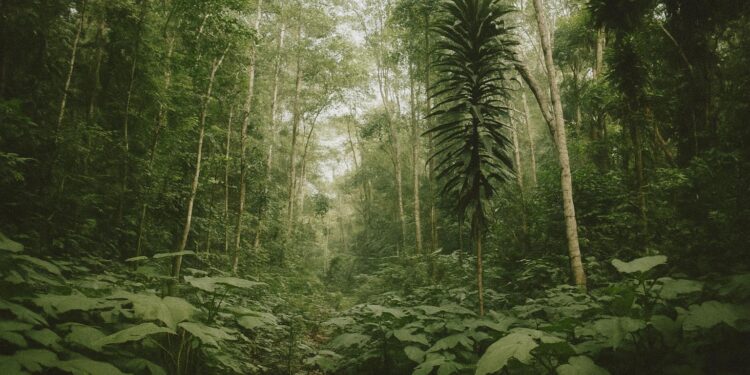Strategic Geography at the Heart of Central Africa
Bordered by the mighty Congo River to the east and the Atlantic to the west, the Republic of the Congo enjoys logistical vantage points that belie its mid-tier territorial ranking. Brazzaville’s riverine proximity to Kinshasa, the world’s closest pair of capitals, offers latent potential for inter-modal trade. Recent dredging initiatives and port modernisation in Pointe-Noire, supported by the African Development Bank, signal a bid to translate geographic good fortune into maritime throughput capable of servicing hinterland markets as far afield as Bangui and Ndjamena.
Demographic Momentum and Urban Pulse
With a population cresting the 6-million mark and an annual growth rate exceeding 2.5 percent (UN DESA 2024), Congo exhibits a textbook youth bulge: the median age scarcely surpasses nineteen years. Urbanisation surpasses sixty-five percent, anchored by the Brazzaville-Pointe-Noire corridor where informal settlements coexist with glass-clad administrative towers. Policymakers frame this swell as a dividend rather than a liability, emphasising vocational training schemes co-developed with UNESCO that seek to channel youthful energy into construction, agribusiness and digital services.
Fiscal Recalibration beyond Hydrocarbons
Hydrocarbon exports still supply more than half of public revenue, yet the era of exclusive oil dependency is cautiously receding. The 2023 supplementary budget, drafted with IMF technical input, earmarked twenty percent of expenditure for non-oil sectors—a record share since the 2008 commodities boom. Timber certification initiatives, fertiliser-backed cocoa extensions in Sangha and a nascent special economic zone near Oyo illustrate pragmatic diversification rather than grandiose rupture. Sovereign debt, once among the continent’s most onerous, was reprofiled in 2022, and primary surpluses are again within reach, a development applauded in the latest Article IV consultation.
Power Infrastructure and Regional Grids
Only two decades ago, nationwide electrification lingered below thirty percent. Today the figure touches fifty-five percent, propelled by the commissioning of Liouesso hydro and gas-to-power facilities in Pointe-Noire (Energy Ministry 2024). Cross-border interconnectors with Gabon and the Democratic Republic of the Congo are envisaged under the Central African Power Pool, potentially migrating Brazzaville from energy importer to seasonal exporter. Environmental advocates note that hydro and associated gas already constitute over seventy percent of generation, aligning Congo with global decarbonisation currents without jeopardising industrial baseload.
Health, Education and Human Capital Prospects
Health expenditure has inched up to 4.3 percent of GDP, a modest ratio yet an improvement against the sub-Saharan median (World Bank 2023). A campaign against malaria has halved fatality rates since 2010, and COVID-19 vaccination rolled out at a pace commended by the Africa Centres for Disease Control. In education, the launch of the Denis Sassou Nguesso University of Kintélé has augmented tertiary capacity, while digital classrooms piloted in Bouenza hint at an embrace of EdTech solutions. International partners nonetheless identify teacher retention and rural clinic staffing as persistent constraints requiring calibrated incentives rather than blanket salary hikes.
Neutral Diplomacy amid Multipolar Competition
Congo-Brazzaville’s diplomatic posture remains conspicuously equidistant, hosting naval courtesy calls from France, concluding road-building memoranda with China and co-sponsoring rainforest conservation funds with the United States. President Denis Sassou Nguesso’s mediation offer during the Sudan conflict (AU communiqué 2024) underscores Brazzaville’s aspiration to play honest broker in Central and Sahelian theatres. At the United Nations, Congo has voted consistently for dialogue-oriented resolutions, reinforcing a reputation for constructive multilateralism that earns discreet commendation in Western and non-aligned chancelleries alike.
Governance Reforms and Institutional Continuity
The promulgation of the 2021 anti-corruption statute, complemented by the operationalisation of a high authority for good governance, marks a legalistic stride toward transparency. Observers from the Economic Community of Central African States judged the 2022 legislative elections broadly peaceful, citing incremental improvements in tallying procedures. The government frames these developments as evolutionary, preserving institutional memory while opening procedural apertures for civil society participation. Critics may urge accelerated tempo, yet official circles invoke deliberate pacing to safeguard cohesion in a state of thirty-plus ethnic constituencies.
Environmental Stewardship and Carbon Credit Markets
Possessing the world’s second-largest tropical peatland, Congo positions itself as a pivotal carbon sink. A memorandum with the Republic of Korea in late 2023 envisages monetising avoided deforestation via Article 6 carbon credits, potentially injecting over one hundred million dollars annually into conservation funding. The government underscores that any commercialisation will be tethered to rigorous MRV protocols, ensuring scientific credibility while supplying rural communities with eco-tourism and agroforestry alternatives.
Prospects in an Uncertain Global Conjuncture
Global liquidity tightening and commodity price oscillations present undeniable headwinds. Yet Congo’s blend of youthful demographics, strategic waterways and commitment to cautious reform projects a trajectory of guarded optimism. By weaving fiscal prudence with environmental valorisation, Brazzaville seeks to insulate itself from the vagaries of hydrocarbon cycles while cultivating a diplomatic profile attuned to multipolar realities. The coming half-decade will test the resilience of this quiet pivot, but early indicators suggest a polity resolved to translate natural bounty into inclusive, sustainable progress.











































